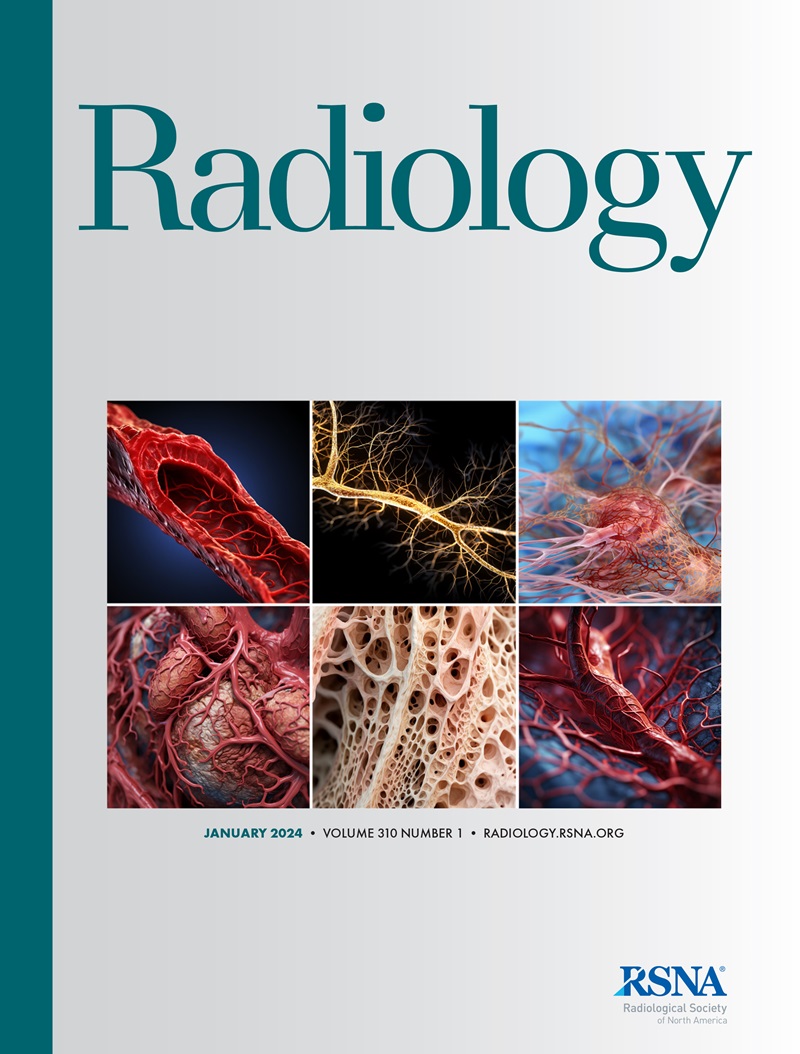Daniele Andreini, Saima Mushtaq, Daniela Trabattoni, Edoardo Conte, Jeroen Sonck, Gerardo Lorusso, Stefano Galli, Giovanni Monizzi, Marta Belmonte, Luca Grancini, Giovanni Teruzzi, Sarah Troiano, Sebastiano Gili, Piero Montorsi, Paolo Olivares, Vincenzo Mallia, Davide Marchetti, Matteo Schillaci, Emanuele Gallinoro, Pasquale Paolisso, Carlo Gigante, Eleonora Melotti, Andrea Baggiano, Maria Elisabetta Mancini, Andrea Annoni, Alberto Formenti, Koshiro Sakai, Takuya Mizukami, Gianluca Pontone, Lorenza Zanotto, Antonio L Bartorelli, Carlos Collet
求助PDF
{"title":"动态应激心肌 CT 灌注与有创生理学相比对支架患者的诊断准确性:优势 2 号研究","authors":"Daniele Andreini, Saima Mushtaq, Daniela Trabattoni, Edoardo Conte, Jeroen Sonck, Gerardo Lorusso, Stefano Galli, Giovanni Monizzi, Marta Belmonte, Luca Grancini, Giovanni Teruzzi, Sarah Troiano, Sebastiano Gili, Piero Montorsi, Paolo Olivares, Vincenzo Mallia, Davide Marchetti, Matteo Schillaci, Emanuele Gallinoro, Pasquale Paolisso, Carlo Gigante, Eleonora Melotti, Andrea Baggiano, Maria Elisabetta Mancini, Andrea Annoni, Alberto Formenti, Koshiro Sakai, Takuya Mizukami, Gianluca Pontone, Lorenza Zanotto, Antonio L Bartorelli, Carlos Collet","doi":"10.1148/radiol.232225","DOIUrl":null,"url":null,"abstract":"<p><p>Background The detection of in-stent restenosis (ISR) with coronary CT angiography (CCTA) is challenging, but CT perfusion (CTP) has demonstrated improved diagnostic accuracy over CCTA in patients with stents. However, there are limited data on the performance of dynamic CTP, which allows noninvasive adjudication of regional myocardial blood flow. Purpose To compare the diagnostic performance of regadenoson-stress dynamic CTP with that of CCTA, using fractional flow reserve (FFR) and the index of microvascular resistance (IMR) as reference standards for epicardial coronary circulation and coronary microcirculation, respectively. Materials and Methods Between January 2021 and June 2022, this prospective study enrolled patients with stents with indication for invasive coronary angiography due to suspicion of ISR or coronary artery disease progression. Participants underwent dynamic stress myocardial CTP and rest CTP plus CCTA. A wide coverage (z-axis coverage, 16 cm) and fast (gantry rotation time, 0.28 second) scanner was used. During invasive coronary angiography, FFR and IMR were obtained. The diagnostic rate (number of interpretable territories divided by number of evaluated territories) and accuracy of CCTA and CTP were evaluated in a territory-based analysis and compared with FFR and IMR (primary end points of the study). Results The study included 156 consecutive patients (136 men [87%]; mean age, 63.1 years ± 8.2 [SD]) with 504 stents. The diagnostic rate was higher for CTP than for CCTA (98.7% [789 of 799 territories] vs 95.6% [764 of 799 territories], <i>P</i> < .001). With use of FFR as the reference standard, sensitivity, specificity, and diagnostic accuracy were higher for CTP than for CCTA (89.0%, 82.8%, and 84.7%, respectively, vs 60.0%, 61.9%, and 61.5%; <i>P</i> < .001). With use of IMR as the reference standard, sensitivity, specificity, and diagnostic accuracy were higher with CTP than with CCTA (76.5%, 85.9%, and 82.9%, respectively, vs 48.2%, 63.5%, and 59.3%; <i>P</i> < .01). The mean effective dose of stress CTP plus CCTA was 10.4 mSv ± 2.7. Conclusion In patients with coronary stents, dynamic CTP improves the diagnostic performance of CCTA in the detection of territory-based ischemia. © RSNA, 2024 <i>Supplemental material is available for this article.</i> See also the editorial by Williams in this issue.</p>","PeriodicalId":20896,"journal":{"name":"Radiology","volume":"313 3","pages":"e232225"},"PeriodicalIF":12.1000,"publicationDate":"2024-12-01","publicationTypes":"Journal Article","fieldsOfStudy":null,"isOpenAccess":false,"openAccessPdf":"","citationCount":"0","resultStr":"{\"title\":\"Diagnostic Accuracy of Dynamic Stress Myocardial CT Perfusion Compared with Invasive Physiology in Patients with Stents: The Advantage 2 Study.\",\"authors\":\"Daniele Andreini, Saima Mushtaq, Daniela Trabattoni, Edoardo Conte, Jeroen Sonck, Gerardo Lorusso, Stefano Galli, Giovanni Monizzi, Marta Belmonte, Luca Grancini, Giovanni Teruzzi, Sarah Troiano, Sebastiano Gili, Piero Montorsi, Paolo Olivares, Vincenzo Mallia, Davide Marchetti, Matteo Schillaci, Emanuele Gallinoro, Pasquale Paolisso, Carlo Gigante, Eleonora Melotti, Andrea Baggiano, Maria Elisabetta Mancini, Andrea Annoni, Alberto Formenti, Koshiro Sakai, Takuya Mizukami, Gianluca Pontone, Lorenza Zanotto, Antonio L Bartorelli, Carlos Collet\",\"doi\":\"10.1148/radiol.232225\",\"DOIUrl\":null,\"url\":null,\"abstract\":\"<p><p>Background The detection of in-stent restenosis (ISR) with coronary CT angiography (CCTA) is challenging, but CT perfusion (CTP) has demonstrated improved diagnostic accuracy over CCTA in patients with stents. However, there are limited data on the performance of dynamic CTP, which allows noninvasive adjudication of regional myocardial blood flow. Purpose To compare the diagnostic performance of regadenoson-stress dynamic CTP with that of CCTA, using fractional flow reserve (FFR) and the index of microvascular resistance (IMR) as reference standards for epicardial coronary circulation and coronary microcirculation, respectively. Materials and Methods Between January 2021 and June 2022, this prospective study enrolled patients with stents with indication for invasive coronary angiography due to suspicion of ISR or coronary artery disease progression. Participants underwent dynamic stress myocardial CTP and rest CTP plus CCTA. A wide coverage (z-axis coverage, 16 cm) and fast (gantry rotation time, 0.28 second) scanner was used. During invasive coronary angiography, FFR and IMR were obtained. The diagnostic rate (number of interpretable territories divided by number of evaluated territories) and accuracy of CCTA and CTP were evaluated in a territory-based analysis and compared with FFR and IMR (primary end points of the study). Results The study included 156 consecutive patients (136 men [87%]; mean age, 63.1 years ± 8.2 [SD]) with 504 stents. The diagnostic rate was higher for CTP than for CCTA (98.7% [789 of 799 territories] vs 95.6% [764 of 799 territories], <i>P</i> < .001). With use of FFR as the reference standard, sensitivity, specificity, and diagnostic accuracy were higher for CTP than for CCTA (89.0%, 82.8%, and 84.7%, respectively, vs 60.0%, 61.9%, and 61.5%; <i>P</i> < .001). With use of IMR as the reference standard, sensitivity, specificity, and diagnostic accuracy were higher with CTP than with CCTA (76.5%, 85.9%, and 82.9%, respectively, vs 48.2%, 63.5%, and 59.3%; <i>P</i> < .01). The mean effective dose of stress CTP plus CCTA was 10.4 mSv ± 2.7. Conclusion In patients with coronary stents, dynamic CTP improves the diagnostic performance of CCTA in the detection of territory-based ischemia. © RSNA, 2024 <i>Supplemental material is available for this article.</i> See also the editorial by Williams in this issue.</p>\",\"PeriodicalId\":20896,\"journal\":{\"name\":\"Radiology\",\"volume\":\"313 3\",\"pages\":\"e232225\"},\"PeriodicalIF\":12.1000,\"publicationDate\":\"2024-12-01\",\"publicationTypes\":\"Journal Article\",\"fieldsOfStudy\":null,\"isOpenAccess\":false,\"openAccessPdf\":\"\",\"citationCount\":\"0\",\"resultStr\":null,\"platform\":\"Semanticscholar\",\"paperid\":null,\"PeriodicalName\":\"Radiology\",\"FirstCategoryId\":\"3\",\"ListUrlMain\":\"https://doi.org/10.1148/radiol.232225\",\"RegionNum\":1,\"RegionCategory\":\"医学\",\"ArticlePicture\":[],\"TitleCN\":null,\"AbstractTextCN\":null,\"PMCID\":null,\"EPubDate\":\"\",\"PubModel\":\"\",\"JCR\":\"Q1\",\"JCRName\":\"RADIOLOGY, NUCLEAR MEDICINE & MEDICAL IMAGING\",\"Score\":null,\"Total\":0}","platform":"Semanticscholar","paperid":null,"PeriodicalName":"Radiology","FirstCategoryId":"3","ListUrlMain":"https://doi.org/10.1148/radiol.232225","RegionNum":1,"RegionCategory":"医学","ArticlePicture":[],"TitleCN":null,"AbstractTextCN":null,"PMCID":null,"EPubDate":"","PubModel":"","JCR":"Q1","JCRName":"RADIOLOGY, NUCLEAR MEDICINE & MEDICAL IMAGING","Score":null,"Total":0}
引用次数: 0
引用
批量引用

 求助内容:
求助内容: 应助结果提醒方式:
应助结果提醒方式:


